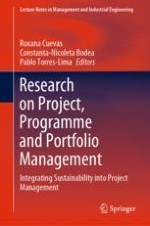This book collects recent work presented at the 31st IPMA Congress, which was held in Merida, Mexico, from September 30th to October 2nd, 2019. It covers a range of project, programme and portfolio management contexts, with the general aim of integrating sustainability into project management.
The book is structured into three parts. The first part covers concepts and approaches related to the integration of sustainability in project management. The second part presents research on integrating sustainability into project management in different industries and regions. The final part takes specific perspectives on integrating sustainability into project management related to learning and continuing competence development.
The book offers a valuable resource for all researchers interested in studying the emerging trends in incorporating sustainability in project, programme and portfolio management.
